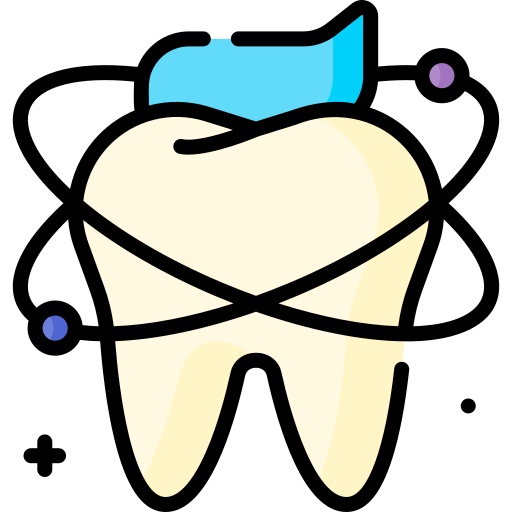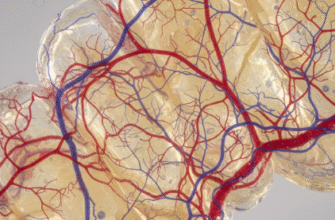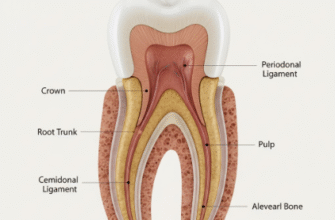It’s a tempting thought, isn’t it? That little twinge in your tooth, those slightly tender gums – maybe if you just ignore them, they’ll pack their bags and leave on their own. We often experience minor aches elsewhere in the body that do indeed fade with time. A slight muscle strain from overdoing it at the gym, a fleeting headache – these can resolve spontaneously. This common experience sometimes leads people to believe the same magic applies to their mouths. Unfortunately, when it comes to dental dilemmas, this is a particularly persistent and potentially problematic myth.
The Stubborn Nature of Dental Issues
Unlike a scraped knee that your body diligently works to heal, forming a scab and fresh skin, your teeth and gums operate under different rules. Once certain types of damage occur, your body doesn’t have the same built-in repair mechanisms for them.
Our Teeth: Remarkable but Not Self-Healing
Think about the structure of a tooth. The outer layer, the enamel, is the hardest substance in the human body. It’s incredible! But it has a crucial limitation: it cannot regenerate. If tooth decay, essentially an acid attack fueled by bacteria and sugars, creates a hole (a cavity) in your enamel, that hole is there to stay unless a dental professional intervenes. It won’t fill itself back in. Similarly, if a tooth cracks or chips, the missing piece won’t magically reappear. The damage, once done, is permanent without external help.
The March of Bacteria
Many dental problems, like cavities and gum disease, are driven by bacteria. These microorganisms are always present in our mouths, but when they get out of balance or find a comfortable, undisturbed place to thrive (like between teeth or under the gumline), they can cause serious trouble. An infection in a tooth or in the gums isn’t like a common cold that your immune system usually vanquishes. These infections can become entrenched, progressively worsening and leading to more significant issues. Your body’s defenses can be overwhelmed or unable to reach the core of the problem effectively, especially deep within a tooth or under hardened plaque (tartar).
It’s crucial to understand that ignoring dental symptoms rarely leads to a positive outcome. While pain might temporarily subside in some cases, the underlying problem often continues to worsen silently. This can lead to more complex and invasive treatments down the line, ultimately costing more time and resources.
The Deceptive Disappearance Act
Sometimes, a toothache might genuinely seem to vanish. This can be a dangerous deception. Why might pain fade if the problem isn’t actually resolved? There are a couple of common scenarios.
One possibility is that a deep cavity has reached the tooth’s pulp – the central part containing nerves and blood vessels. If the infection becomes severe enough, the nerve inside the tooth can actually die. When the nerve dies, the intense pain signal it was sending stops. Relief! Or so it seems. The infection, however, is very much alive and can now spread beyond the tooth’s root into the jawbone, potentially forming an abscess. So, the absence of pain doesn’t mean the absence of a problem; it can sometimes mean the problem has just escalated to a new, often more serious, stage.
Another instance is with gum inflammation. Perhaps your gums were bleeding and sore. You might step up your brushing and flossing for a few days, and the visible symptoms lessen. While improved oral hygiene is always good, if the underlying cause – often hardened plaque (calculus or tartar) beneath the gumline – isn’t removed professionally, the inflammation is likely to return or smolder quietly, continuing to damage the supporting structures of your teeth.
The Price of Procrastination
Waiting for dental issues to “fix themselves” is a gamble where the odds are heavily stacked against you. What starts as a minor inconvenience can easily snowball into a major ordeal, both for your mouth and your peace of mind.
From Small to Significant
Consider a tiny spot of decay. If caught early, it might be addressed with a simple, small filling. Quick, relatively inexpensive, and minimally invasive. But if left to its own devices, that tiny spot will grow. Bacteria don’t take vacations. The cavity will deepen, potentially reaching the tooth’s pulp. Now, instead of a small filling, you might be looking at root canal therapy and a crown to save the tooth – procedures that are more complex, time-consuming, and costly. If the decay is too extensive, extraction might be the only option left.
The Ripple Effect on Gums
The same principle applies to gum health. Early gum inflammation (gingivitis), characterized by red, swollen, or bleeding gums, is often reversible with professional cleaning and improved home care. But if ignored, gingivitis can progress to periodontitis. This is a more severe form of gum disease where the infection damages the bone and fibers that hold your teeth in place. Teeth can become loose and may eventually be lost. The damage caused by periodontitis is largely irreversible.
Beyond the Mouth
While we’re focusing on avoiding topics that delve too deeply into medical specifics, it’s widely accepted that oral health is connected to overall well-being. Letting dental problems fester isn’t just about potential tooth loss; it’s about maintaining a comfortable and functional mouth, which contributes significantly to your general quality of life. The stress and discomfort of an ongoing dental issue can also take a toll on your daily activities and confidence.
The Power of Prevention and Early Intervention
If dental problems don’t resolve on their own, what’s the best course of action? It’s all about being proactive rather than reactive. Regular dental check-ups and cleanings are your first line of defense, and arguably the most effective strategy against worsening dental issues.
Seeing the Unseen
Your dentist has the tools and expertise to spot problems you might not even be aware of. Early-stage cavities often don’t cause any pain. Gum disease can develop silently in its initial phases. X-rays can reveal issues hidden beneath the enamel or below the gumline, like impacted teeth, cysts, or bone loss. Catching these things early means treatment is generally simpler, less invasive, and more successful. This early detection is paramount because it stops small issues from becoming large, painful ones.
The Value of Professional Cleaning
Even with the most diligent brushing and flossing, plaque can accumulate in hard-to-reach areas and eventually harden into tartar (calculus). Tartar cannot be removed by brushing alone; it requires professional scaling. Regular cleanings remove this tartar, helping to prevent cavities and gum disease, and keeping your smile bright and breath fresh. These cleanings are not just cosmetic; they are a cornerstone of preventive dental care.
Think of your dental team as partners in your oral health. They’re not just there to fix problems; they’re there to help you prevent them in the first place and to guide you in maintaining a healthy mouth for life. Their advice on home care techniques and product choices can also be invaluable.
Familiar Feelings: Why “Waiting It Out” Doesn’t Work
Let’s look at a few common sensations or observations people might experience and why applying the “wait and see” approach is ill-advised in these dental scenarios.
“It’s Just a Little Sensitivity.”
Tooth sensitivity to hot, cold, or sweet things can be caused by various factors. Sometimes it’s due to minor gum recession exposing the root surface, or perhaps vigorous brushing. However, sensitivity can also be an early warning sign of a cavity, a cracked tooth, or a failing filling. Ignoring it means you might be missing an opportunity for early, simpler intervention. A dentist can help determine the cause and recommend appropriate action, which might be as simple as using a desensitizing toothpaste or could involve addressing a more significant underlying issue that, if left, will only deteriorate.
“My Gums Only Bleed Sometimes.”
Healthy gums don’t bleed. If your gums bleed when you brush or floss, even occasionally, it’s a sign of inflammation, likely gingivitis. While you might think it’s because you brushed too hard, it’s more often due to plaque buildup irritating the gums. Ignoring bleeding gums allows the inflammation to persist and potentially progress to more serious gum disease, which can lead to bone loss and eventually tooth loss. Professional cleaning and advice on your home care routine are key to resolving this before it becomes a chronic problem.
“This Small Chip Isn’t Bothering Me.”
A tiny chip on a tooth might seem purely cosmetic and not worth worrying about, especially if it’s not causing pain. However, even a small chip can weaken the tooth structure, making it more prone to further fracture. The chipped area can also have sharp edges that irritate your tongue or cheek, or it might create a niche where plaque can easily accumulate, increasing the risk of decay. It’s always best to have any chip, no matter how small, evaluated by a dental professional to prevent future complications.
Embrace Proactive Dental Wellness
The notion that dental problems will simply fade away with time is a comforting one, but ultimately, it’s a dangerous misconception. Unlike many other parts of your body that have remarkable self-healing capabilities, your teeth and gums often require professional help to address issues once they arise. Delaying necessary attention usually leads to more complex problems, more discomfort, and more involved treatments down the road.
Instead of hoping for the best, take an active role in your oral health. Regular dental visits for check-ups and cleanings are fundamental. These appointments aren’t just about fixing things; they are crucial for prevention and early detection. When you notice something amiss – a twinge, sensitivity, bleeding gums, a chip – don’t wait for it to “get better” on its own. Seeking timely professional advice is the smartest, healthiest, and often most cost-effective approach in the long run. Your smile will thank you for it!








